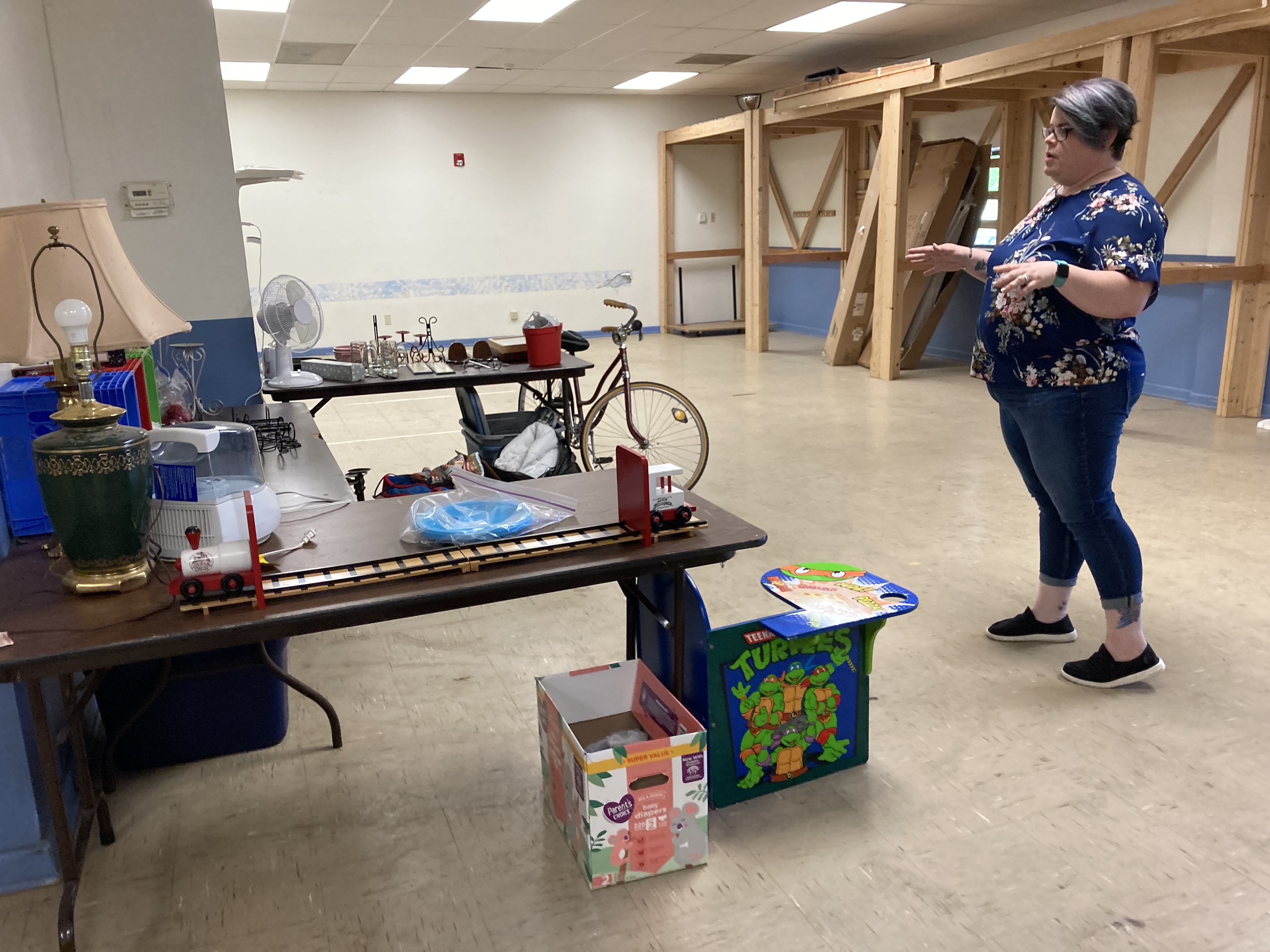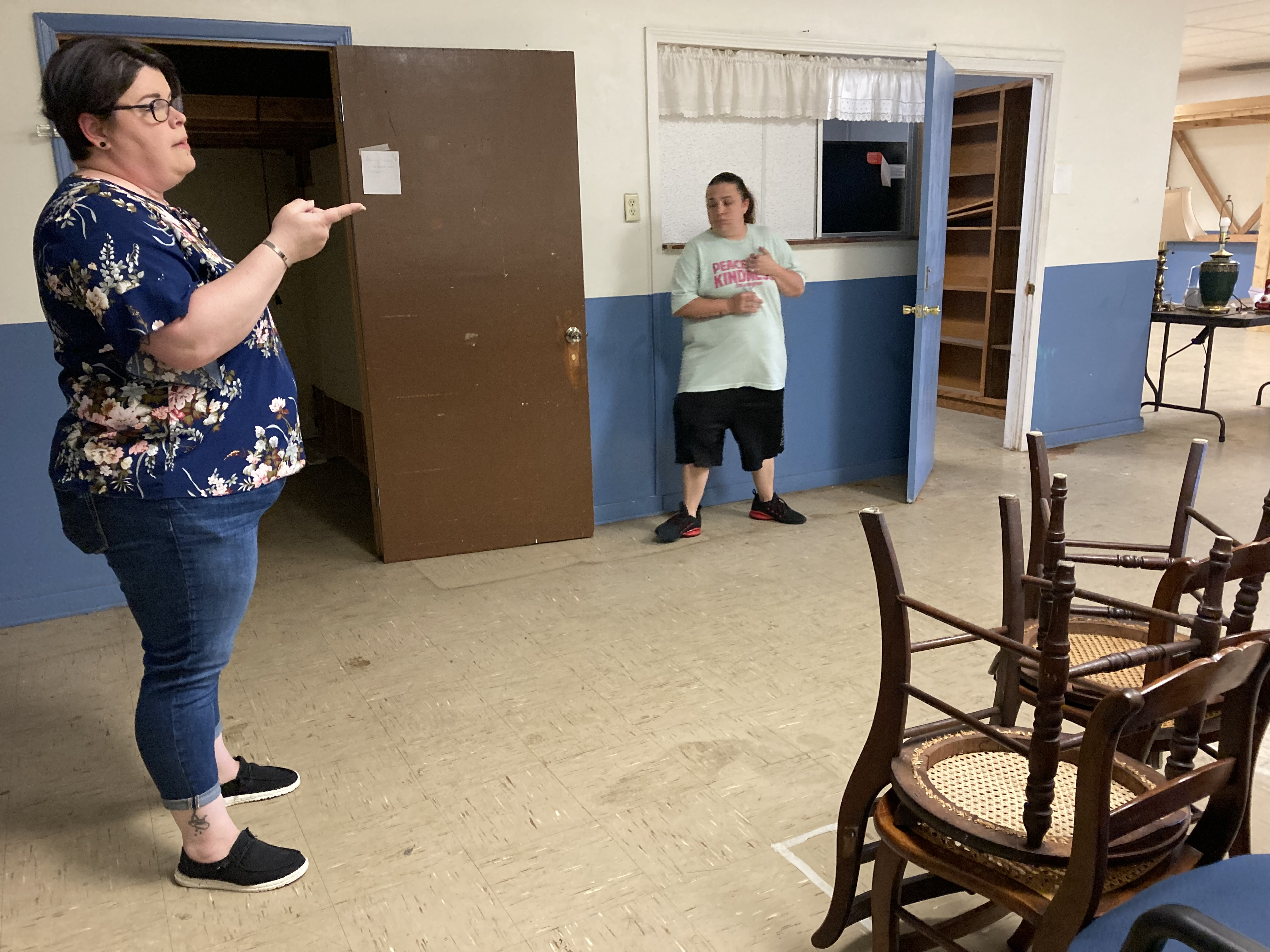Spring cleaning season is here. If you come across gently used furniture and household wares collecting dust, a Springfield woman is launching a new nonprofit organization that will put those items to good use.
The Passion House Project will collect any new or gently used pieces of furniture, decor or household goods and give them to people who have housing — but cannot afford the items that make a home. This includes people who were once homeless, low to moderate-income people who are working but cannot afford to furnish their home and youth who are aging out of the foster care system and trying to make it on their own.
Larra Alford, the founder of the Passion House Project, was homeless as a teen and struggled as a single mom for many years. She knows firsthand what it’s like to finally be able to afford rent but not have enough money for household items and furniture.
“I had a milk crate with a TV on it and I had a beanbag and a lawn chair in my living room,” Alford recalled of her days as a working, single mom. “That’s not something you’re super proud of to be able to invite people over to come and hang out. It’s kind of embarrassing.”
Alford, who’s since earned a bachelor’s degree in psychology from Missouri State University and serves on the Advisory Board of the Drew Lewis Foundation’s RISE program, currently works as a home visitation specialist for families that have kids in foster care or are at risk of going into foster care.
“I’m seeing this need firsthand,” she said. “There are families that I know of that live in sheds right now.”
When a vacuum brings tears

(Photo by Jackie Rehwald)
Alford shared a story of one mom on her caseload who was so excited about getting a vacuum cleaner that she called Alford.
“She was like, ‘Listen, listen, listen,’” Alford recalled that phone call. “And she turned on the vacuum cleaner and she vacuumed her living room while I was on the phone. Then she came back to the phone crying.
“She was like, ‘I have a vacuum. I can clean my house now,’” Alford said. “You don’t realize that a vacuum is a privilege. That really touched my heart. She’s a big reason I am doing this.”
According to Alford, Passion House Project is a little different than some programs that take used furniture in that it will be a little picky when it comes to the quality and condition of the items.
As Alford puts it: “If you would give it to your grandmother to use, I would love to have it.”
‘We are giving these to families that are already in an underserved and underprivileged population. I don’t want to add more to their headache,” she added. “If we are giving them broken furniture that’s got rips and stains and tears, that’s just giving them a headache in the long run.
“We are not trying to send little critters home with people,” Alford said. “You’ve got to be aware of people’s allergies, things like that with pets and smoking. So gently used and new is what we’re going to be accepting.”
This ‘pickiness’ will also help cut down on Passion House Project’s trash bill. Alford said she knows of another nonprofit that had a similar mission that went under recently because its trash bill was about $1,200 a month.
“I can’t do that,” she said. “We just don’t have the funds. Even if we got bigger, I still don’t want to (pay) $1,200 that could be going to helping individuals and families and kids aging out of the foster care system.”
At least in the beginning, the organization won’t be taking washers, dryers and refrigerators because they take up too much space.
How locals in need can get the furnishings
The program will be referral-based only, meaning agencies and nonprofits will refer individuals and families to receive assistance from Passion House Project. If you're in need of a referral, good places to start include the Drew Lewis Foundation or the Connecting Grounds, a church that serves the homeless, those in need, and families within the foster care system.
“(The referral system) allows me to make sure leases are verified of where people are living,” Alford explained, “so we are not sending stuff home with them and it showing up on Facebook Marketplace that afternoon.”
Also, because Passion House Project is currently using donated warehouse space, people can’t just show up to pick out furniture like a thrift store.
“It’s not going to be open to the public,” Alford said. “You can contact me to make a donation.”
If they are able, recipients of donated goods will be expected to schedule a time to pick up the items. If they are unable, the Passion House Project can deliver items to the home.
The Passion House Project is collaborating with the Connecting Grounds on the effort.
The owner of the buildings on and near Commercial Street that was once owned by The Kitchen, Inc. (including the former Missouri Hotel building) has been allowing the Connecting Grounds to utilize a warehouse building there.
Alford and her wife, Taressa, are currently cleaning and organizing a large portion of this building to house the Passion House Project. This isn’t a permanent home, Alford said, because the building’s owner is working to renovate the buildings.
But at least for the next few years — which will allow Alford a chance to apply for grants and get the Passion House Project on solid footing — the warehouse will be home.
How Passion House Project will be funded, and how they plan to keep the program alive

(Photo by Jackie Rehwald)
Alford said she got the incorporation paperwork for Passion House Project back in October, but the 501(c)(3) nonprofit status is still pending. In the meantime, the Connecting Grounds is allowing the Passion House Project to use the Connecting Grounds’ nonprofit status so people can make tax-free donations to the cause.
Alford said the nonprofit will officially launch in July. But if someone wants to make a donation, she is able to pick those up now.
The fundraising goal for startup is $50,000, which includes $5,000 to purchase the Connecting Ground’s yellow box truck for pickups and deliveries. Connecting Grounds uses that box truck to do street and camp outreach, but the church’s pastor wants to buy a more inconspicuous vehicle for outreach work.
The $50,000 goal includes $10,000 to purchase items like mattresses that can’t be used, and it also includes Alford’s salary.
“I have a family to take care of,” said Alford. “But I want this to be my full-time gig because I want to go out and I want to get the word out to all agencies in the surrounding areas: We’re here. We can start to get people on a waitlist.”
The nonprofit will serve families and individuals in Greene County and immediate surrounding counties.
As someone who’s experienced the “cliff effect” firsthand, Alford said it’s important to her to serve those families and individuals, too. The cliff effect is when people lose eligibility for public assistance resulting from an increase in wages, even if the increase is not sufficient to cover basic needs. Oftentimes, a tiny wage increase — less than a quarter, for example — can lead to the loss of thousands of dollars’ worth of assistance.
“The cliff effect affected my family. We graduated college in 2019 and we were like, you start your careers and everything will be great,” she said. “We made $150 more a month, and we lost $1,200 in benefits.
“My in-laws were so kind, and they put food in our house for 18 months,” Alford continued, “because we just couldn’t do it. We could do rent. We could do electric. We could do taking the kids to the doctor, gas to get back and forth to work. But it literally was leaving us with $20 each paycheck, and you cannot feed a family of five on $20 every two weeks.
“So I want to make sure to help those people in that cliff effect,” Alford said. “Because they are suffering just as much as those that are still getting the benefits.”
More information
Learn more about the Passion House Project at passionhouseproject.org.
Find a referral checklist here.
To contact Alford about making a donation, email info@passionhouseproject.org.

